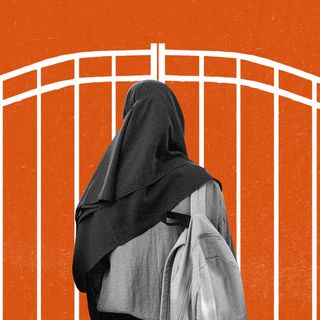Ruling that reproductive choice is “an insegregable part” of a woman’s personal liberty enshrined in Article 21 of the Indian Constitution, the Delhi High Court allowed a woman to terminate her 28 weeks’ pregnancy.
The 33-year-old woman had been undergoing regular check-ups during her pregnancy. However, around the time she completed the 24th week of her pregnancy, she found out that the fetus had a rare congenital heart condition. Upon consultation with different medical experts, she learned that individuals born with the condition have only a 50% chance of survival in the first year following their birth. If they do survive, the condition would entail an array of surgeries to be performed on them through the course of their lives — with the individual’s survival depending on the success of the surgeries.
However, by the time she was able to gather this information, her pregnancy had advanced beyond 24 weeks, which is the new upper limit for abortion in India. 24 weeks was made the legal limit only after the Medical Termination of Pregnancy (Amendment) Act, 2021; prior to that, the limit was set at 20 weeks under the Medical Termination of Pregnancy Act, 1971. Nonetheless, this led her to approach the court to seek permission to abort her pregnancy.
Recognizing her dilemma, Justice Jyoti Singh, who heard her case, ruled that forcing her to continue with the pregnancy just because the 24-week-deadline had passed, could adversely impact her mental health.
“The petitioner, in my view, is justified in contending that continuing with the pregnancy, once it is known that the fetus suffers from a rare congenital heart disease, which is a ‘substantial fetal abnormality’, with attendant complications and risks, would have a deleterious impact on her mental health,” she noted.
Related on The Swaddle:
Indian Women Seeking Abortions Are Petitioning the Courts, Even When They Don’t Need To
Before arriving at its decision, the court had directed the All India Institute of Medical Sciences, or AIIMS, to constitute a multi-disciplinary board of experts to investigate the “necessity and feasibility of medical termination of the pregnancy” at this stage.
Based on its report, Justice Singh added, “…the child would require cardiac surgery not only in the initial stage of life, but may also need a repeat cardiac surgery in late adolescence or adulthood. This entire medical regime would expose the child to intra– and post-operative complications… adversely impacting the quality of the child’s life… [This] indicates that the entire life of the child, if born, would largely depend on the clinical condition and quality of medical care provided to the child. Thus, lack of compatibility of the fetus with a healthy and normal life is looming large.”
Past research suggests that forcing a woman to go ahead with a pregnancy against her will, increase her risk of depression by 20%. As such, it is heartening to witness Indian courts taking citizens’ mental health into account — especially at a time when a mental health crisis is rapidly unraveling in the wake of the pandemic.
The court also looked at a 2016 judgment by the Bombay High Court, which stated that “a woman’s decision to terminate a pregnancy is not a frivolous one… If a woman does not want to continue with the pregnancy, then forcing her to do so represents a violation of the woman’s bodily integrity [and harmful] to her mental health.”
By setting a judicial precedent like the present one, lending legal recognition to the importance of mental health and the degree to which it can impact people’s lives, is certainly a positive development in the approach of courts towards matters.




